Cocoa Farming is the World's Worst after American Slavery.
- Ethan Swift

- May 31, 2024
- 9 min read
Discover the secrets to breaking the cycle of slavery in chocolate industry with our comprehensive guide.

How to Break the Chocolate Industry
Its broken, and no one is coming to fix it. Chocolate was never meant to be a cheap commodity. Its a luxury good. Colonialism is why this is so unclear. Don't forget its only 100% African kids that are enslaved. They are dark brown like chocolate, not like the face of a beloved child eating the beloved treat, "they are eating my felsh", the children have been quoted. Chocolate has a darker side (its racsim) that often goes unnoticed. Behind the sweet facade lies a complex and problematic industry riddled with issues such as trafficking, unsustainable practices, torture, wage theft and corporate greed. However, amidst these challenges, there is hope for disruption -- a break. In this article, we will delve deep into the issues plaguing the chocolate industry and explore ways in which we can break free from its sweet chains.

"Cheap" Cocoa Costs the Lives of Children
Its not cheaper. If chocolate is $2.00 instead of $10.00, you are simply not paying for human rights in to the farmers. One of the most pressing issues within the chocolate industry is the use of child labor because the pesticide use is illegal -- and it is leading to a crisis of quantity (climate change too)... The harsh reality is that many children around the world are forced into strenuous work on cocoa farms, depriving them of their childhood and basic rights. The demand for cheap cocoa perpetuates this vicious cycle, as farmers resort to exploiting vulnerable children to keep production costs low. No, not all are trafficked, tortured and abused. Just 2.1 million of them in West Africa.
This inhumane practice can be eradicated through human-rights implementation. By raising awareness, pressuring chocolate companies to adopt human-rights, and supporting organizations that promote strictly child-slave free cocoa, we can create a world where chocolate no longer comes at the expense of innocent lives. Where it is no longer commodified (it tastes better).
It is important to note that the issue of child labor in the cocoa industry is not limited to a single country or region. Children as young as 5 years old are often found working in hazardous conditions on cocoa farms in West Africa, particularly in countries like Ivory Coast and Ghana. These children are exposed to dangerous chemicals, heavy machinery, and long hours of labor, all for the sake of meeting the high demand for cocoa worldwide. They are the worst forms out of any industry in the whole world.
Furthermore, the impact of child labor extends beyond the physical harm inflicted on these young individuals. Many of them are denied access to education, trapping them in a cycle of poverty with limited opportunities for a better future. Addressing this systemic issue requires a multi-faceted approach that involves not only regulating the cocoa supply chain but also investing in education and community development programs in cocoa-growing regions. Being trafficked traps them and adds to these conditions being the world's worst conditions ever, after American Slavery.
Cocoa is Going up in Price; Thank GOD?!
The rising price of cocoa has become a cause for concern in recent years. Various factors contribute to this phenomenon, such as climate change, diseases affecting cocoa trees, and market speculation. These challenges, coupled with the inherent inequality within the supply chain, make it even more difficult for small-scale cocoa farmers to survive financially. There is nothing left for the children left to farm. No rubber growing trees have not replaced the cocoa trees. The sand-winning though, we will assess its threat level later.

It is crucial for consumers to choose products that support cocoa farming that uses human-rights. By opting for chocolate brands committed to paying fair prices to farmers, we can help create a market that values both quality cocoa and the livelihoods of those who produce it. Its called, "TRUE SUSTAINABILITY".
Climate change has had a significant impact on cocoa production, with rising temperatures and unpredictable weather patterns affecting the growth and yield of cocoa trees. This has led to a decrease in supply, driving up prices in the market. Whoopsie! Maybe high price cocoa has a future? Have you tasted it?

Market speculation also plays a role in the fluctuation of cocoa prices but thats nerdy as hell and actually disconnects the rights of humans from the global cocoa supply chains... Whoopsie! Do 2 wrongs make right if they are both from the same corrupt governments?
Slavery Is Never Sustainable in Any Industry
It is imperative that Pono Cocoa write this to increase your awareness of human-rights within the chocolarer you celebrate, love, envy, crazve and splurge on. Are you splurgin on cocoa farmed by trafficked 5-year olds??? Wait... Who is the slave? Chocolate consumers educate themselves about the brands they support or avoiding being fed the product of violation and abuse. By choosing those that are transparent, accountable, and committed to eradicating slavery, we can contribute to building a slave-free industry that values human dignity above all else.
Furthermore, the issue of slavery in the chocolate industry is not just limited to the production of cocoa. It extends to other ingredients like sugar and palm oil, where similar human rights abuses have been reported. This interconnected web of exploitation highlights the need for a comprehensive approach to address forced labor across all facets of food production. Not our focus!!! We are just focusing on cooca as it is the worst in the world. And the most suppressed human-rights abuses. Black children are humans. They are not Oompa Loompas. They are homo sapiens. Road "dahl" is a dish indigenous farmers should chew to pieces.

Advocacy groups and non-profit organizations play a crucial role in monitoring and exposing instances of slavery in supply chains. Thats it though. Pono Cocoa is trying to end it. Consumers can support these CERTIFIED child-slave free brands by Pono Cocoa 501(c)3 charity non-for-profit without having to stay informed, participate in campaigns, and fearing eating the product of slavery ever again. Demanding greater transparency from brands takes too long, so we built you the Pono Cocoa List. No more fearing where the chocolate you are melting in your mouth is from. Thanks Pono Cocoa!
Get the guide, "How to Buy Child-Slave Free Chocolate"
Ensuring that the chocolate we consume is free from child labor can be a daunting task. Pono Cocoa made it easy! Check our list, read the packaging or even look for the Certified Pono Cocoa Child-slave Free Cocoa and Chocolate stickers. To simplify this process further, a comprehensive guide has been developed to help consumers make informed choices. The free guide, aptly titled "How to Buy Child-Slave Free Chocolate," provides valuable insights, tips, and a list of companies that uphold ethical practices in sourcing their cocoa.
Furthermore, the guide offers a glimpse into the fake certification processes that supposedly ensure the cocoa used in chocolate production is sourced responsibly. From Fair Trade, UTZ, Rainforest Alliance and even Direct Trade certifications has no anti-child slavery protocols or requirements. You thought they did though. Everyone did. Class action lawsuit anyone???

It is PLAINLY illegal to have, sell, store, move, give or conduct any private or public commerce or transactions with the product of child-slavery (in the USA). Maybe we need a nationa-wide pardon? What about abolition of child-slaves? Where is the Abraham Lincoln of Cocoa Slavery! Its all of us! The South is all law breakers profiting from wage theft of trafficked child-slaves in cocoa. and the North, that's you. You eat slave free chocolate. But you don't want a civil war in Africa. A chocolate war? That is the name of the documentary on the subject of child-slavery in cocoa; "The Chocolate War". Watch it , especially if you haven't picked sides yet. Spoiler alert: slavery is never sustainable... So, abolition and reparations then, for then children? Yes? You can volunteer with us, donate and subscribe to our mailing list to help us show black lives matter in cocoa.
Slave-free Chocolate has been Around for 4500 years
You may be surprised to learn that the idea of slave-free chocolate is not a modern concept; it has a history dating back thousands of years. Ancient civilizations, such as the Mayans and Aztecs, revered cocoa and recognized the importance of ethical practices in its production.
By drawing inspiration from our ancestors, we can reclaim the roots of chocolate and advocate for an industry that values the dignity of all those involved in its creation. Looking to the past can enlighten us on the path to a identically sustainable future.
Exploring further into the history of chocolate, we find that the Mayans used cocoa beans not only for consumption but also as an aid for ceremony and even a currency. This dual purpose highlights the deep cultural significance and value placed on cocoa in ancient Mesoamerican societies. Specifically that value is lost on most chocolatiers in the. wrold and thousands of chocolate-makers.
Additionally, the Aztecs believed that cacao seeds were a gift from the god of wisdom and used them to create a ceremonial drink called "xocolatl," which was reserved for nobility and important rituals. This sacred connection between cocoa and spirituality underscores the reverence with which chocolate was viewed in these early civilizations.
Speaking and Keynotes (& Booking) Human Rights Cocoa Advocates
Human-rights education and awareness play a vital role in effecting change within the chocolate industry. To further amplify the young (unheard) voices fighting for lives free of cocoa farming, speaking engagements and keynote talks from Pono Cocoa Board members can serve as powerful catalysts for change.

By booking such speakers, individuals, organizations, and companies can ignite conversations around the ethical implications of chocolate production but actions are what is called for. It's known as the "triple-bottom-line"; the environmental awareness/impact and social governance by corporations. And it makes them sustainable forever. The 'true" long-term... Keynote and speaking engagements with Pono Cocoa not only educate, inspire human rights awareness in cocoa but also equp listeners to take charitable action, support sustainable reforms within their own industries. To book Pono Cocoa's keynote talk and influence your emergin leaders to become truly sustainable with human-rights awareness, book a discovery call with Cocoa Coach Ethan right away.

How to Fix the Chocolate Industry
Break it further? Well, yeah... In order to break the chocolate industry, we must first understand how dysfunctions are its key features. Let's take into account the perspectives of farmers, laborers, consumers, and policy-makers who do and don't want things to change. They may not have the safety of young black lives at the center of their goals.
Through collaboration, research, and advocacy, we can push for reforms at every level of the supply chain to finally hear from the generations of uneducated, trafficked, tortured and abused farmers who processed all cocoa you've eaten over your whole life. Don't suppot promote fair trade, they are not slave-free. Do encourage responsible sourcing, ensuring that labor rights are protected and finally, enforce child-labor laws, aka. human-rights.
Challenging the Status Quo: The Need for Change in the Chocolate Industry
Is the chocolate industry at a crossroads? Will traditional practices clash with the demands of an increasingly conscientious consumer base? The Pono Cocoa Team will assure that this happens. Challenging the status quo is not easy, but it is essential for the importance of black lives. We need to question accepted norms and demand transparency from (unwilling and guilty) industry players. Learn their names.
By championing slave-free chocolate, we can disrupt the existing broken model and pave the way for a more human-rights forward future. Change starts with each one of us taking a stand and refusing to settle for anything less than ethical excellence.
Looking to the Future: Is Human-Rights a Trend and Opportunities in the Chocolate Industry?

As we strive to break the dysfunctional chocolate industry, it is essential to consider the trends and opportunities that may shape its future: charity, universal basic income, added-value cacao, livable wages, all 17 of the United Nations human-rights development goals.
This shifting landscape also presents opportunities for entrepreneurs and visionaries to create new business models that prioritize both profit and "beyond-ethical" production. By embracing innovation and collaboration, we can build a chocolate industry that not only delights our taste buds but also nourishes our conscience. We have a list of over 300 chocolate-makers who have already made this switch.
In conclusion, eradicating the problems chocolate industry requires a collective effort that spans every West African Government. Building a better future for cocoa farmers, laborers, and consumers alike means circumventing the established, corrupt infrastructure. Let us seize the opportunity to enjoy chocolate as it was truly meant to be – a treat that brings joy, not suffering.
As we envision a future where the chocolate industry thrives on fairness and integrity, your involvement becomes crucial. Pono Cocoa, a 501(c)3 non-profit organization, is at the forefront of ending child-slavery by supporting child-slave free cocoa farms and chocolate makers globally. Your contribution can propel this vital mission forward. We invite you to join us in this transformative journey—every donation and every volunteer hour makes a significant impact. Be part of the change and Donate and Volunteer With Pono Cocoa today, because together, we can ensure that the sweetness of chocolate is never tainted by the bitterness of injustice.
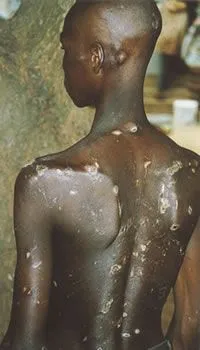


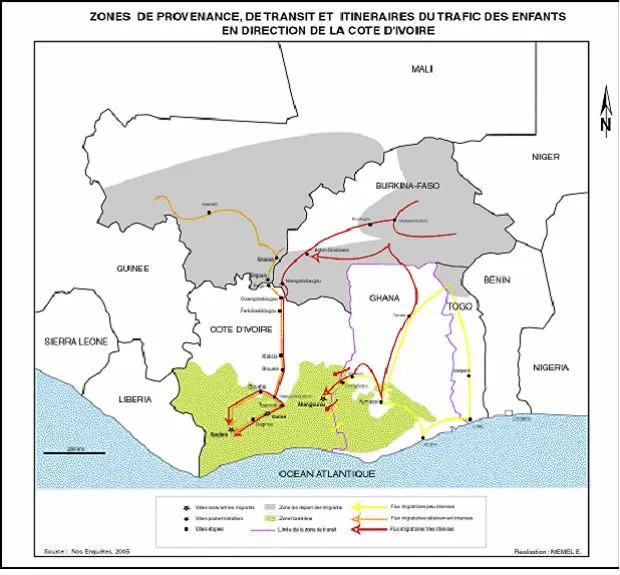
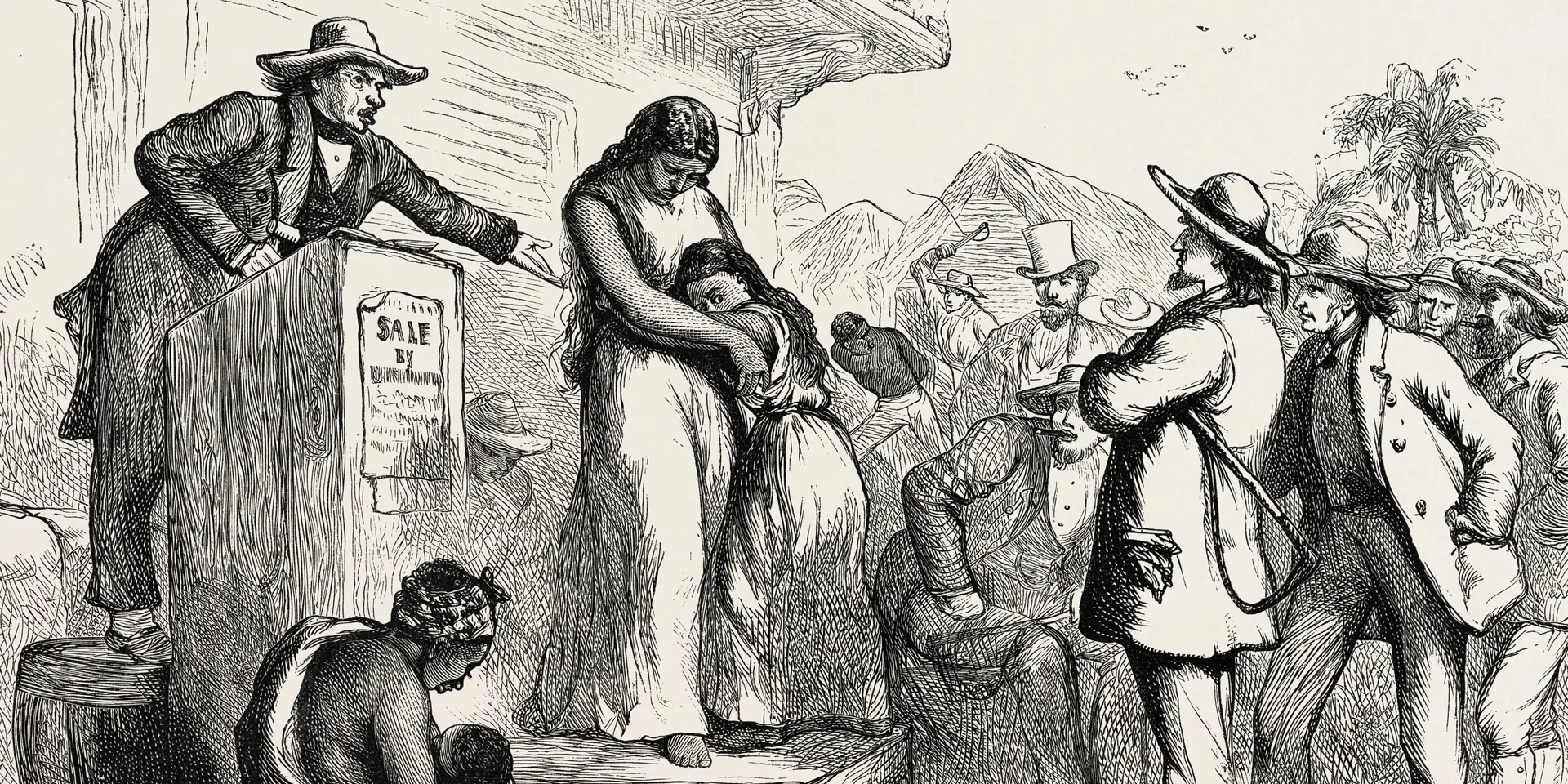
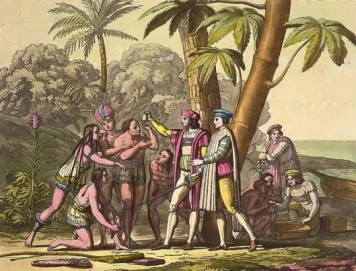







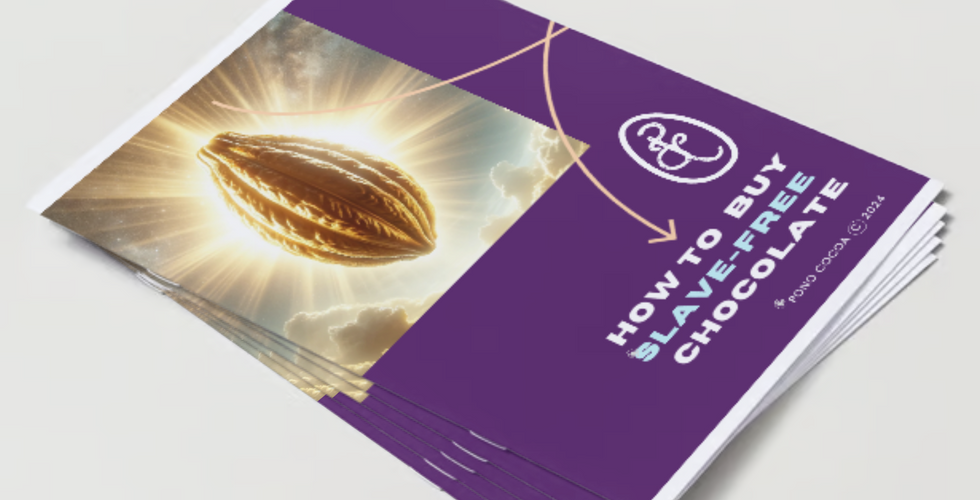


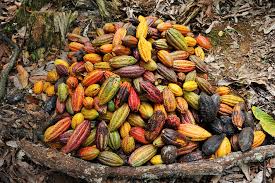
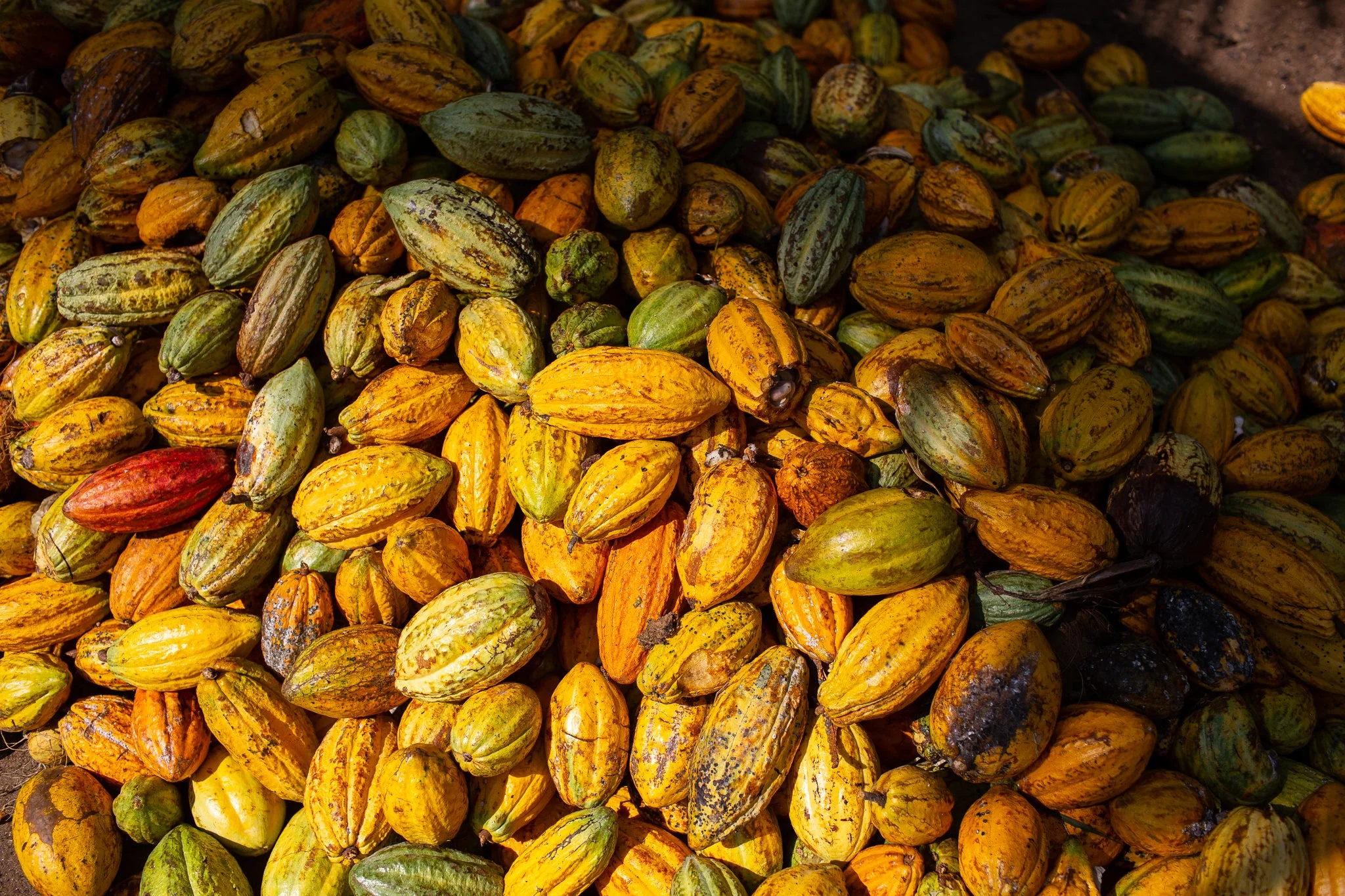





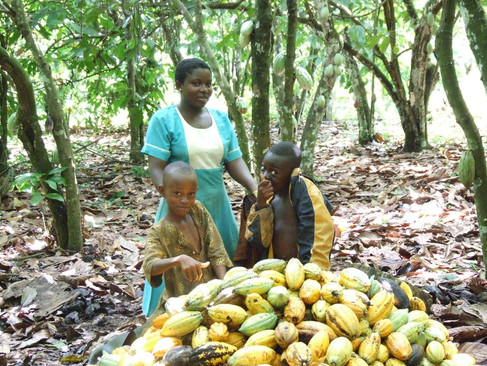





Comments